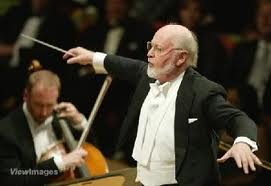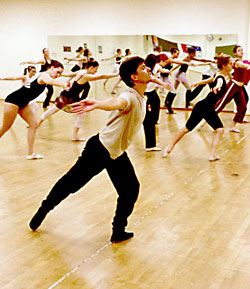Why we subsidise arts majors
 ALEX TABARROK, a George Mason economist and blogger at Marginal Revolution, notes that though many more young Americans, about 50% more, now go to college than did 25 years ago, the number of students studying science, engineering, technology, or mathematics has not increased. So, Mr Tabarrok asks, “If students aren’t studying science, technology, engineering and math, what are they studying?” They are studying interesting and enjoyable fields, it turns out. Mr Tabarrok reports, with no little dread:
ALEX TABARROK, a George Mason economist and blogger at Marginal Revolution, notes that though many more young Americans, about 50% more, now go to college than did 25 years ago, the number of students studying science, engineering, technology, or mathematics has not increased. So, Mr Tabarrok asks, “If students aren’t studying science, technology, engineering and math, what are they studying?” They are studying interesting and enjoyable fields, it turns out. Mr Tabarrok reports, with no little dread:
In 2009 the U.S. graduated 89,140 students in the visual and performing arts, more than in computer science, math and chemical engineering combined and more than double the number of visual and performing arts graduates in 1985.
As a consequence, Mr Tabarrok thinks that “the taxpayers who foot the bill for these subsidies” are being ill used.
I think Mr Tabarrok gets a good deal wrong here. Let me begin my critique with full disclosure: I attended a state university in Iowa on a full-tuition scholarship specifically for art majors. I suspect that if you asked Iowans if they support their state universities granting full-tuition scholarships to high-school seniors who demonstrate special promise in the arts, most of them would say it’s a fine idea. If you were then to ask if they believe this will help cure cancer or boost GDP, they’d probably look at you a little funny, not being idiots, and perhaps graciously inquire if you think it will.
My public high school in central Iowa had, at the time I was there, an extraordinarily nice auditorium featuring state of the art light, sound, and fly systems superior to that of many nearby small colleges. As Thespian Club president, I spent a lot of time in this fine facility, and learned a great deal there. Did the good citizens of Marshalltown imagine that their property taxes (and donations!) would quicken the pace of innovation by way of high-school productions of “Oklahoma!”? I’ll be damned if they did. And I don’t suppose they thought the football team, or the marching band, or the swing choir was good for much, either, innovation- and growth-wise. But they wanted them anyway, and they ponied up the taxes.
All of which is to say that I don’t think Mr Tabarrok accurately identifies why “we add subsidies to the mix”. He’s right that many of us hold that education is a boon to society. But this conviction is rooted less in growth theory than in a Jeffersonian faith in the importance of a well-informed, well-rounded citizenry. I have never once heard anyone complain that they are forced to subsidise the education of young people applying themselves to the study of abstract expressionism or Yeats, despite the fact that this does so little to improve human welfare. No Iowa taxpayer ever told me I wasted their money (until today, five minutes from now, in the comments).
Speaking of human welfare, I wonder why Mr Tabarrok is so fixed on the role of education as an input to production but so uninterested in it as a form of consumption, whence all welfare flows. The fact that the percentage of students studying science, engineering, technology, and maths has declined, despite the fact that salaries for graduates with these majors are handsome and steadily increasing, ought to be very telling, especially to an economist. It’s important to note that everyone knows that engineering jobs are far more plentiful and remunerative than jobs in ballet companies. If we faithfully apply the economists’ idea of “revealed preference”, it seems we should infer that students decreasingly care to use their time at university preparing to land highly-paid jobs. We might even infer that parental/taxpayer pressure to do so has declined. I know I didn’t think I was making some kind of mistake studying in art instead of biology, because art is fun and putting test-tubes in a centrifuge is a perfectly awful way to waste one’s life, unless you happen to like that sort of thing, and, clearly, most of us don’t.
What is economic growth for, anyway? It’s for expanding our choices and making life better. Is it really so surprising that, as we grow wealthier as a society, more and more of our young people, when the amazing resources of the modern university are put at their disposal, choose to use them learning something satisfying and enriching and not for anything except cherishing the rest of their lives? Is it really so surprising that taxpayers are not in revolt over the existence of poetry professors?
As we grow wealthier as a society, we also devote ever more money and time listening to music, attending performances, reading books, watching film and TV. Somebody has to make this stuff, and I’m certain its full value is not captured in the economists’ growth stats. I spent last evening reading a fine Pulitzer prize-winning novel by a graduate of a state-university creative-writing program. I appreciate everything math majors do for us. I really do. But, as far as I know, a math major has never made me cry.









Leave a Reply
Want to join the discussion?Feel free to contribute!